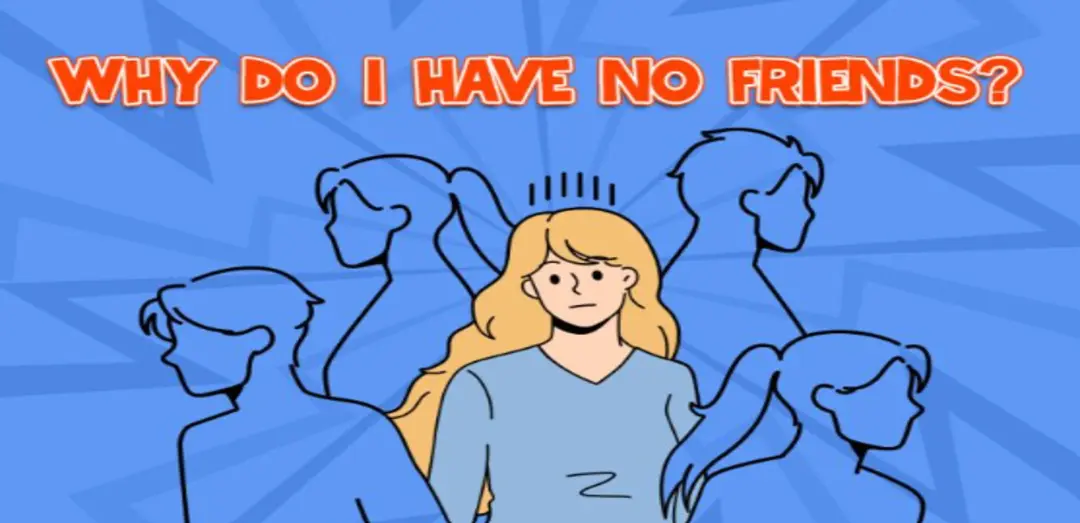Have you ever found yourself wondering, “Why do I have no friends?” It can be a distressing and lonely experience to feel like you are lacking meaningful connections in your life.
While it is natural to desire companionship and social interaction, there can be various reasons why some individuals find themselves in a situation where they have no friends.
More information:-
. Explore the Earth’s surface with expert guides. Discover fascinating landscapes and hidden wonders.
. Discover “The Colorado History” through key events, figures, and culture.
1. Lack of Social Skills – Do I Have No Friends
One possible reason for having no friends is a lack of social skills. Building and maintaining friendships require effective communication, empathy, and the ability to connect with others. If you struggle with social skills, it can be challenging to initiate conversations, understand social cues, or establish a genuine connection with people.
To improve your social skills, consider seeking guidance from a therapist or counselor who can provide you with strategies and techniques to enhance your interpersonal abilities. Engaging in social activities or joining clubs and groups that align with your interests can also provide opportunities to practice and develop your social skills.
2. Fear of Rejection
Another common factor that can contribute to having no friends is a fear of rejection. It is natural to feel vulnerable when putting yourself out there and opening up to others. However, the fear of being rejected or judged can prevent you from forming connections and taking social risks.
It is important to remember that rejection is a normal part of life, and not everyone will click with you. Embracing the possibility of rejection and developing resilience can help you overcome this fear.
Start by taking small steps, such as initiating conversations with acquaintances or attending social events. Gradually, you will become more comfortable with the idea of putting yourself out there and forming new connections.

3. Lack of Shared Interests
Having no friends can also be attributed to a lack of shared interests. Meaningful friendships often develop when individuals have common hobbies, passions, or goals. If you find it challenging to connect with others, it may be because you have not yet found people who share your interests.
To expand your social circle and increase your chances of finding like-minded individuals, consider exploring new activities, joining clubs, or attending events centered around your interests. Engaging in activities that genuinely excite you will not only increase your chances of meeting potential friends but also allow you to have more fulfilling experiences.
4. Changes in Circumstances
Life changes, such as moving to a new city, starting a new job, or going through a significant life transition, can also contribute to having no friends. These changes can disrupt existing social networks and make it challenging to build new connections.
If you find yourself in a new environment, it is essential to give yourself time to adjust and be patient with the process of forming new friendships. Actively seek out opportunities to meet new people, such as attending social events or joining community groups. Remember that building friendships takes time and effort, so don’t be discouraged if it doesn’t happen overnight.
Visit Other Locations :
. Discover premium outdoor gear at High Camp Supply. Shop durable equipment and apparel for your next adventure.
. Discover convenience and quality with Amazon Fresh. Explore fresh groceries, quick delivery, and more.
5. Self-Perception and Confidence
How you perceive yourself and your level of self-confidence can significantly impact your ability to form friendships. If you have low self-esteem or struggle with self-confidence, it can be challenging to believe that others would want to be your friend.
Working on building a positive self-image and improving your self-confidence can greatly enhance your social interactions. Engage in activities that make you feel good about yourself, practice self-care, and surround yourself with supportive and positive influences. Remember that everyone has unique qualities and strengths that can be appreciated by others.
Conclusion
Feeling like you have no friends can be a difficult and isolating experience. However, it is important to remember that you are not alone in this struggle.
By addressing the factors that contribute to your social isolation, such as improving social skills, overcoming the fear of rejection, finding shared interests, adapting to changes, and working on self-perception and confidence, you can increase your chances of forming meaningful connections.
Building friendships takes time, effort, and vulnerability. Be patient with yourself and the process, and don’t be afraid to seek support from professionals or trusted individuals in your life.
Remember, everyone deserves meaningful connections and friendship, and with the right mindset and actions, you can create a fulfilling social life.




